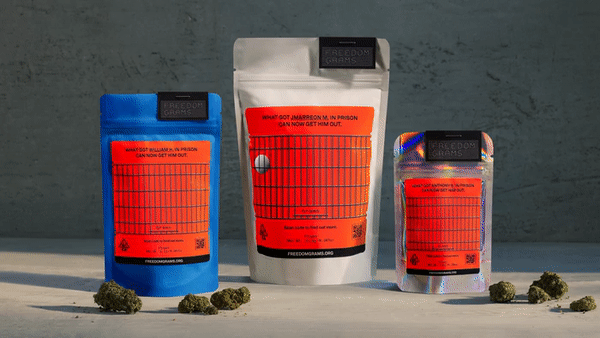 In the US alone, more than 40,000 people are serving sentences for cannabis offences. While the recreational use of marijuana is legal in 19 states, the gap between the industry and recent sentences for cannabis possession speak for themselves. For example, according to the Freedom Grams website, Audreanna J. was sentenced to three years imprisonment for 0.3 grams of cannabis in 2020. It is these cases that the brand wants to advertise as widely as possible, and it is doing it by designing its own cannabis brand.
In the US alone, more than 40,000 people are serving sentences for cannabis offences. While the recreational use of marijuana is legal in 19 states, the gap between the industry and recent sentences for cannabis possession speak for themselves. For example, according to the Freedom Grams website, Audreanna J. was sentenced to three years imprisonment for 0.3 grams of cannabis in 2020. It is these cases that the brand wants to advertise as widely as possible, and it is doing it by designing its own cannabis brand.
To put it simply, Freedom Grams is both an open-source label that other cannabis brands can adopt and a cannabis product in its own right. However, it only sells cannabis in the exact amounts people have been incarcerated for possessing, partnered with information about each case. With such a strategy, the brand takes steps on multiple fronts; while the labels and packaging spread vital awareness, each Freedom Grams product raises money for the Last Prisoner Project’s criminal justice reform efforts.
The idea of giving intangible incarceration statistics literal weight provides the project with a powerful core. “The fact is that people are buying cannabis freely and legally, while someone else got in prison for doing that same thing,” says Sandra Valencia, one of several creative activists behind the project. “We wanted this packaging to act as a mirror, so shoppers could stop and experience how they too could have been in that position.” However, Freedom Grams goes beyond this compelling concept, utilising design and generative type to turn data into something more.


